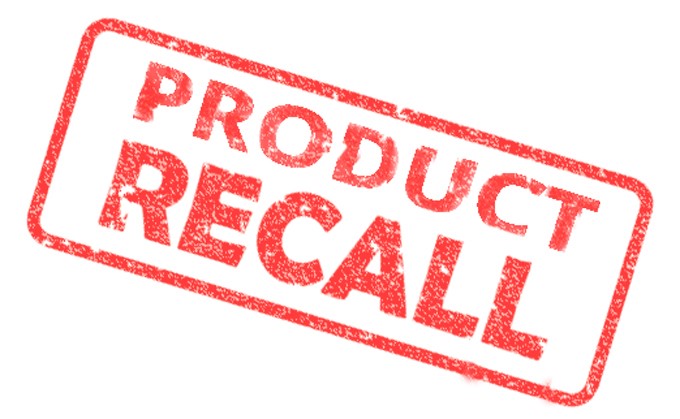A recall can make all consumers especially nervous, but for a company issuing such an action, this can be evermore daunting, though it doesn’t need to be.
A recall is essentially a removal of a product from the market for a defect or other issue that could pose a significant safety or health risk to the public. Recalls and market withdrawals are voluntary actions initiated either by the firm, manufacturer or distributer of the product, or can be mandated by the U.S. Food and Drug Administration (FDA) when a violation is discovered. (1)
There are three types of recalls classified by the FDA: Class I, II, and III Recalls and they each have varying levels of severity.
- Class I Recall – a situation in which there is a reasonable probability that the use of, or exposure to, a violative product will cause serious adverse health consequences or death.
- Class II Recall – a situation in which use of, or exposure to, a violative product may cause temporary or medically reversible adverse health consequences or where the probability of serious adverse health consequences is remote.
- Class III Recall – a situation in which use of, or exposure to, a violative product is not likely to cause adverse health consequences. (1)
The FDA outlines a very specific guidance regarding recalls. The guidance describes suggested actions that the firm must provide during a product recall. This may include the following information: the violative product name, model number, detailed product description, product ID numbers, responsible party, firm and manufacturer information, and the reason for the recall, and this is just a high-level list of criteria as much detail is needed for these submissions.
The FDA reviews this information so they can investigate and determine the effectiveness of the recall and corrective and preventative actions (CAPAs) taken by the responsible firm to ensure the safety and well-being of the public.
In 2016, there were over 7,000 food, medical device and drug recall enforcement reports filed with the FDA. Already this year, over 1,100 reports have been filed with thousands more to be filed in coming months. (2) In some cases, companies may not even be aware of which regulation they aren’t following until it’s too late and their product is out to market.
Recalls happen frequently and for dozens of reasons. To the consumer, it can appear like you’ve missed some steps. Frequent recalls or safety issues can seem like the firm does not have consumer safety and regulatory compliance as a top priority.
Whether reputation and brand recognition are a top priority for your product’s firm, dollars and cents most-likely are. The costs associated with recall management go beyond just the FDA fines for non-compliance, into the million-dollar range for larger companies with wide-spread products. But even for a small firm, costs can be many hundreds of thousands of dollars, and absorbing the costs of recall management can amount to financial losses that could lead to financial ruin and wipe out a small-scale operation completely. (3)
EMMA International can make the recall management process stress-free and simplified for your firm. Your internal quality/regulatory department can continue with day-to-day operations while we develop the recall strategy, CAPAs and handle all the recall action items. Our customizable Outsourced Quality Assurance (OQA) Program® can be used to design, build and implement a unique program for your compliance issues and business needs. We don’t merely render recall strategy advice or provide “cookie cutter” solutions. We cover all the bases and ensure that our experts are integrated into your company’s culture.
References:
- U.S. Food and Drug Administration. Code of Federal Regulations, Title 21, Part 7. (2016, April 1). Retrieved from http://www.accessdata.fda.gov/scripts/cdrh/cfdocs/cfCFR/CFRSearch.cfm?CFRPart=7&showFR=1
- Data was obtained from http://www.ResearchAE.com/recalls.
- Nath, Trevir. How Do Recalls Affect A Company? (2015, January 8). Retrieved from http://www.investopedia.com/articles/investing/010815/how-do-recalls-affect-company.asp





